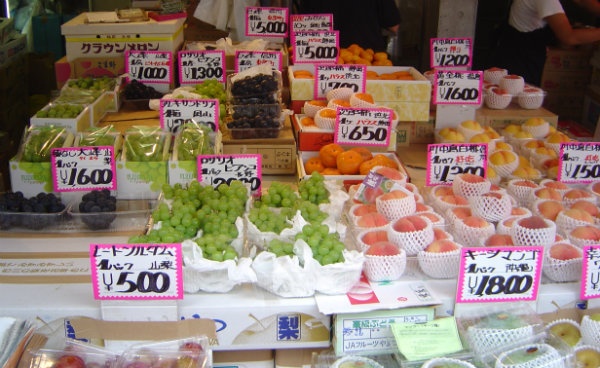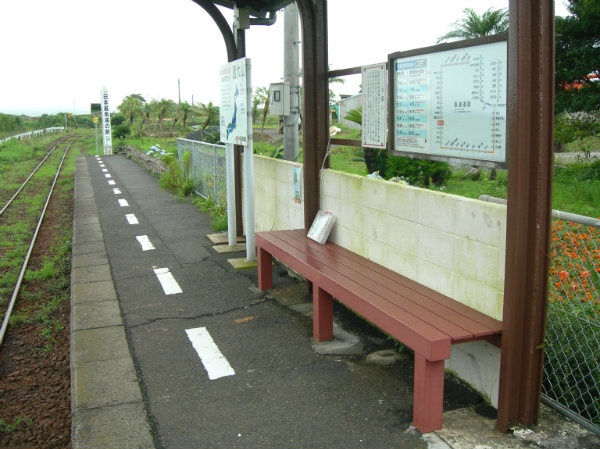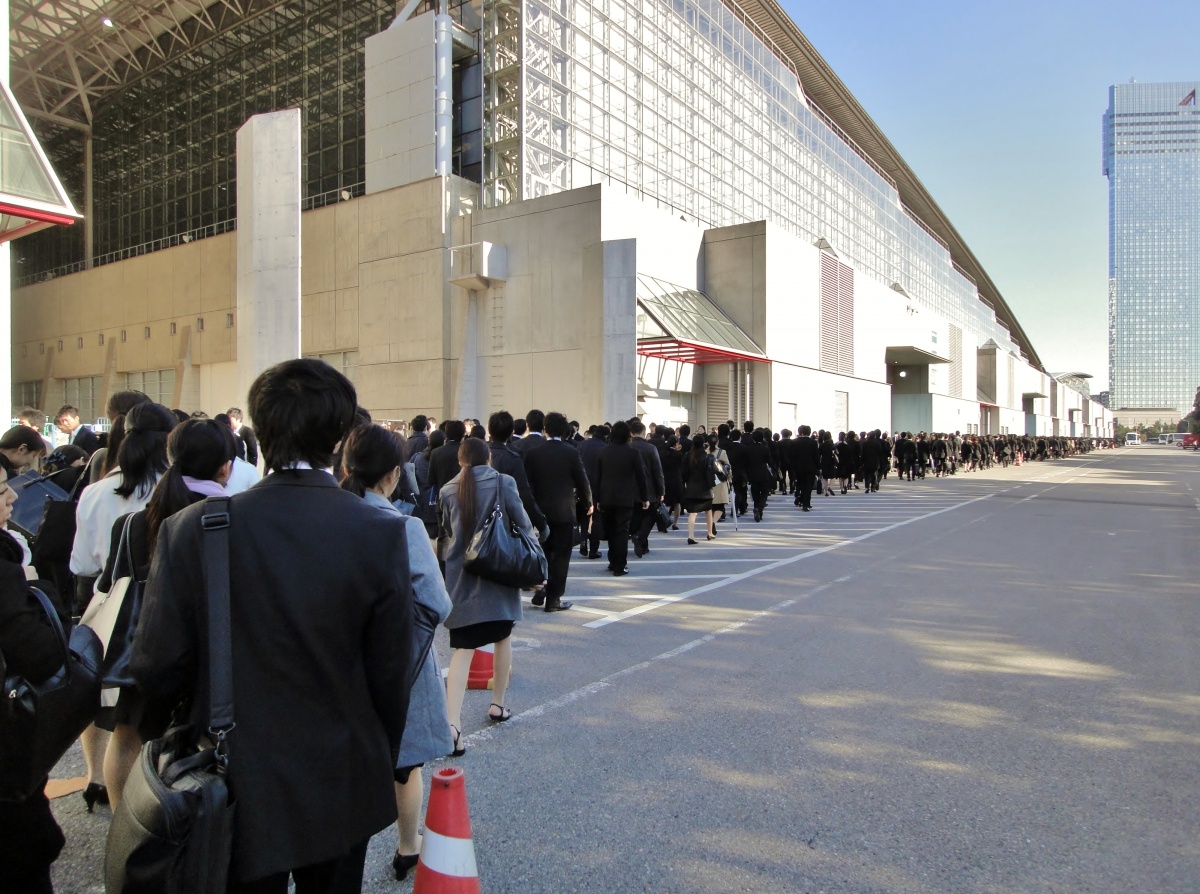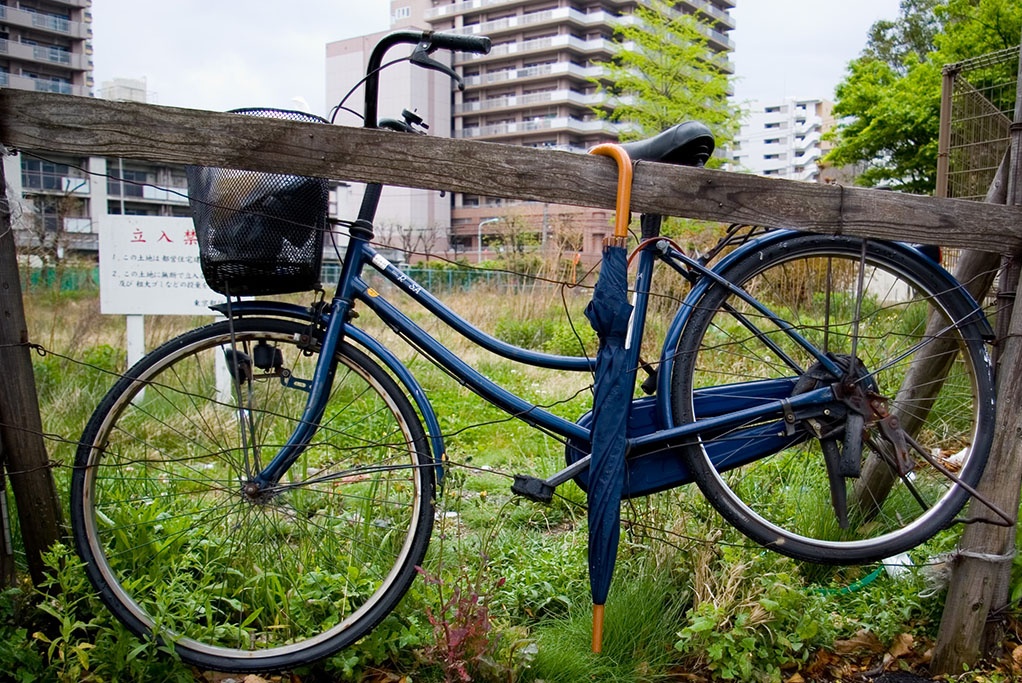10 Things That Might Surprise You in Japan
When traveling to a foreign country for the first time, no matter how well-prepared you are, there’s sure to be a lot you’ll be surprised by! Let’s take a look at 10 things in Japan that might surprise you when you first hop off the plane. With these in mind, you can enjoy your first trip to Japan even more!
By SoraNews246. Fruit Prices

https://upload.wikimedia.org/wikipedia/commons/2/28/Tokyo_Tsukuji_fruit_market_7_008.jpg
If your first trip to Tokyo involves a whole lot of high-class convenience store dining, you might find yourself craving some fruit after a couple of days as kobini don’t typically have much to offer. The basement floor of many department stores include somewhat high-end supermarkets, where you can find a famed gem of Weird Japan— super expensive fruit. It’s not uncommon to see beautiful pieces of fruit going for upwards of ¥10,000 or ¥20,000, but these aren’t melons you bring home and toss in a fruit salad. It’s common for these luxury fruits to be given as gifts during business transactions, weddings or hospital visits. If those are a bit out of your price range, check out the fruit stand just around the left corner of ALTA outside Shinjuku Station’s east exit for ¥100 or ¥200 sticks of delicious fresh fruit!
7. Food Portions

https://upload.wikimedia.org/wikipedia/commons/0/06/%E3%83%81%E3%83%A3%E3%83%BC%E3%82%B7%E3%83%A5%E3%83%BC%E3%83%A1%E3%83%B3%E5%A4%A7%E7%9B%9B%E3%82%8A%E8%96%AC%E5%91%B3%E3%81%AA%E3%81%97.jpg
Here’s some culture shock that works both ways: when Japanese people visit other countries, they’re often shocked by how huge the drink and food portions are. When visiting from outside Japan, you might be surprised by how small your lunch is. After a long day wandering the city, don’t expect a big glass of water when you sit down for a meal—but feel free to ask for okawari (refill) or try somewhere with a drink bar option—free refills of whatever kind of drinks you want for a minimal fixed price. Most Japanese restaurants don’t have “to go” options for leftovers, and instead serve just enough for one meal’s portion. Of course, everyone’s appetite is different, so if you’ve come hungry, try ordering your rice or noodle dish ohmori (big serving.)
8. Finding Places to Sit

https://upload.wikimedia.org/wikipedia/commons/f/f1/Nishi-Ooyama-station-20100627-Bench.jpg
Travel is tiring! Sometimes you just want to find somewhere to rest your feet for a few minutes—but in Japan, Tokyo especially, this is easier said than done. There are very few public benches and places to sit outside, and sitting down on the ground may earn you several side-eye stares. Even train station platforms have only a few seats for weary travelers and commuters. If you really need a break and can’t find a public park, you may have to pay up for a drink in a café or McDonald’s, but you can stay as long as you’d like. Or, if you’re in Tokyo, you can always hop on the Yamanote loop line and be back where you started after one hour!
9. Queuing Culture

https://upload.wikimedia.org/wikipedia/commons/2/26/%E3%83%AA%E3%82%AF%E3%83%AB%E3%83%BC%E3%83%88%E3%82%B9%E3%83%BC%E3%83%84_%286554186267%29.jpg
In a densely packed city such as Tokyo, lining up in an organized way exceeds necessity and has become almost an art form. Lining up for the train, lining up for the escalator, lining up for a restaurant, lining up for an hour to buy specialty popcorn—be ready to do some waiting, and absolutely no cutting in line! If you really hate waiting in lines, they can be reduced or avoided by considering the time of day and day of the week you’re trying to go somewhere or do something. Plan around weekends and rush hour!
10. Lost Items
One of the scariest possible travel mishaps is losing something in a foreign country. But good news! If you lose something in Japan, the odds are pretty good that it will be returned to you. Items such as wallets, umbrellas, and more that get lost on trains can be recovered by talking to station staff, though sometimes you may need to go to the last station on that train line to access their lost and found. If you lose something elsewhere, try finding the nearest koban (police box) and explaining what you lost, where, and when. If you forget something in your hotel room, the hotel staff will almost always be able to get it back to you, even if you’ve already gone home! To begin explaining your situation, try using the phrase: wasuremono wo shimashita (I lost/forgot something) and go from there.





